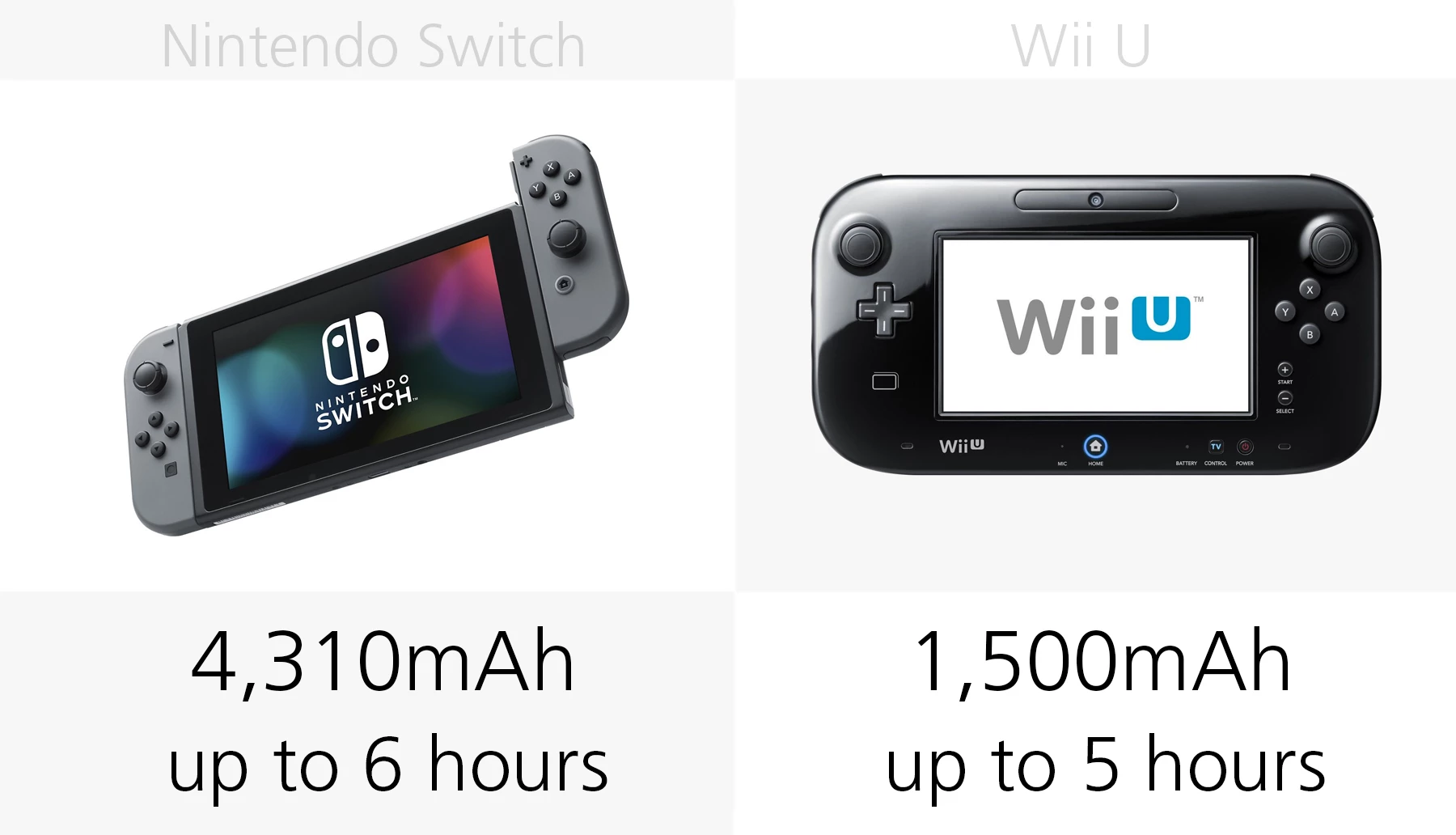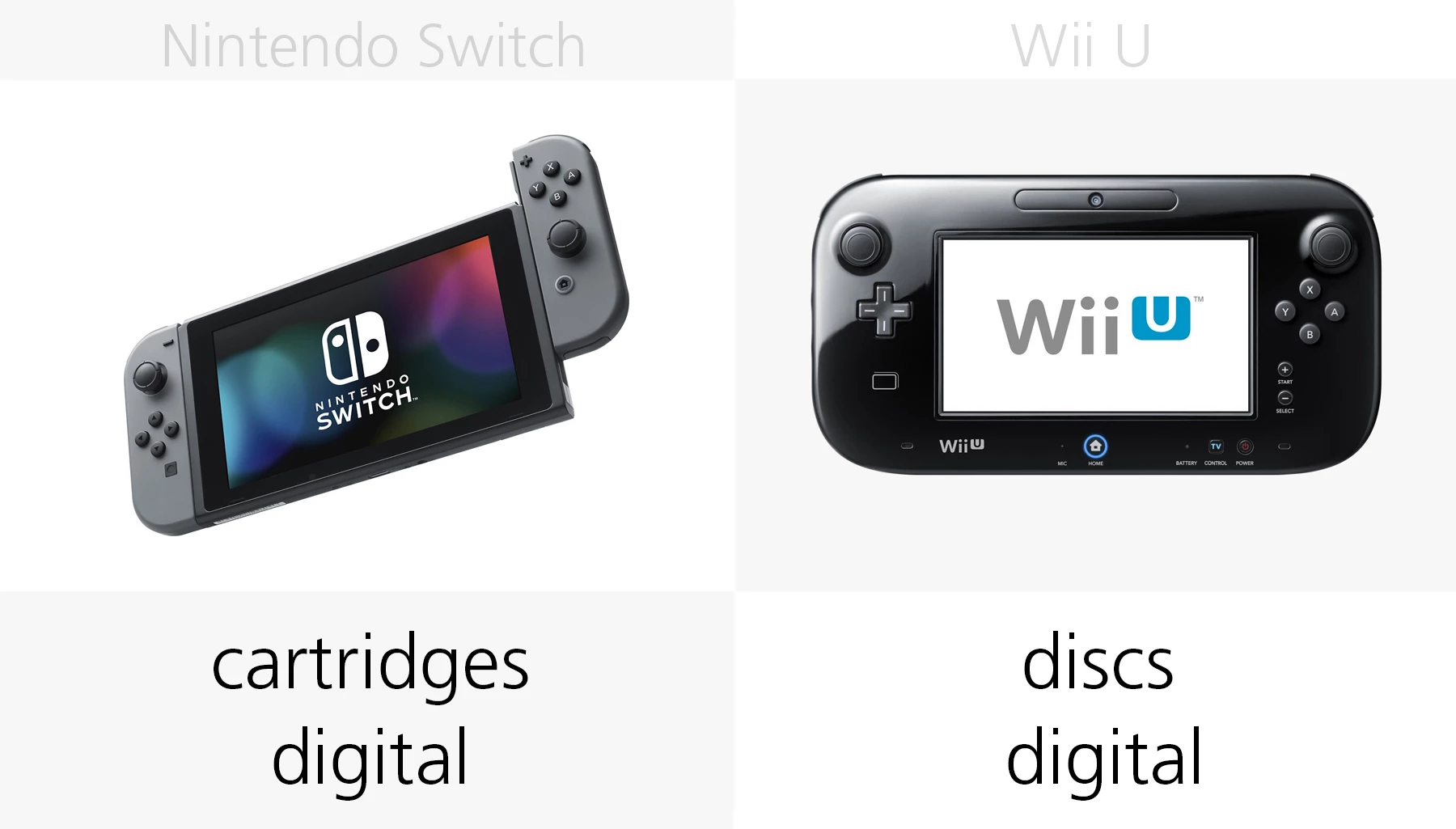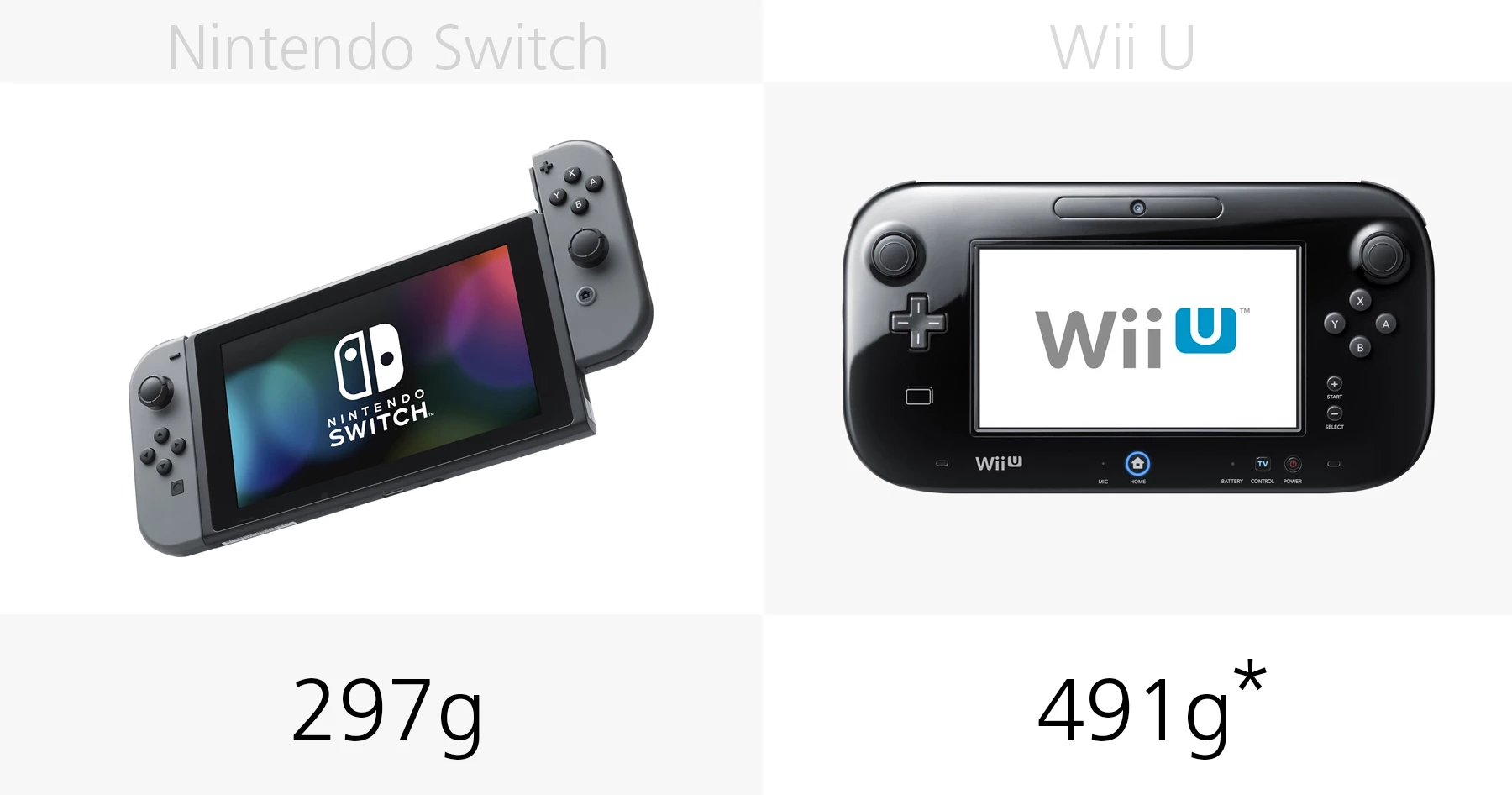It's clear that the new Nintendo Switch is a big step forward from the disappointing Wii U. But if you're a Wii U owner who's thinking about an upgrade for you or the kiddos, maybe you're wondering what exactly the differences are – and whether you should upgrade now or later. Let New Atlas help, as we compare the features and specs of new and old Nintendo consoles.
Standalone portable

While the Wii U GamePad could be used to play games without a TV, it wasn't truly a standalone portable: It needed to be in the same vicinity as the main console. (Its games streamed wirelessly from console to the satellite GamePad.)
The Nintendo Switch, on the other hand, is fully self-contained as an on-the-go portable. But you can also tether it to a TV (by sliding it into a docking station) for a richer presentation. In that way, you can say Switch is fulfilling the hybrid vision that the Wii U only hinted at.
TV console

Of course both work displaying their games on a TV as well.
Dimensions
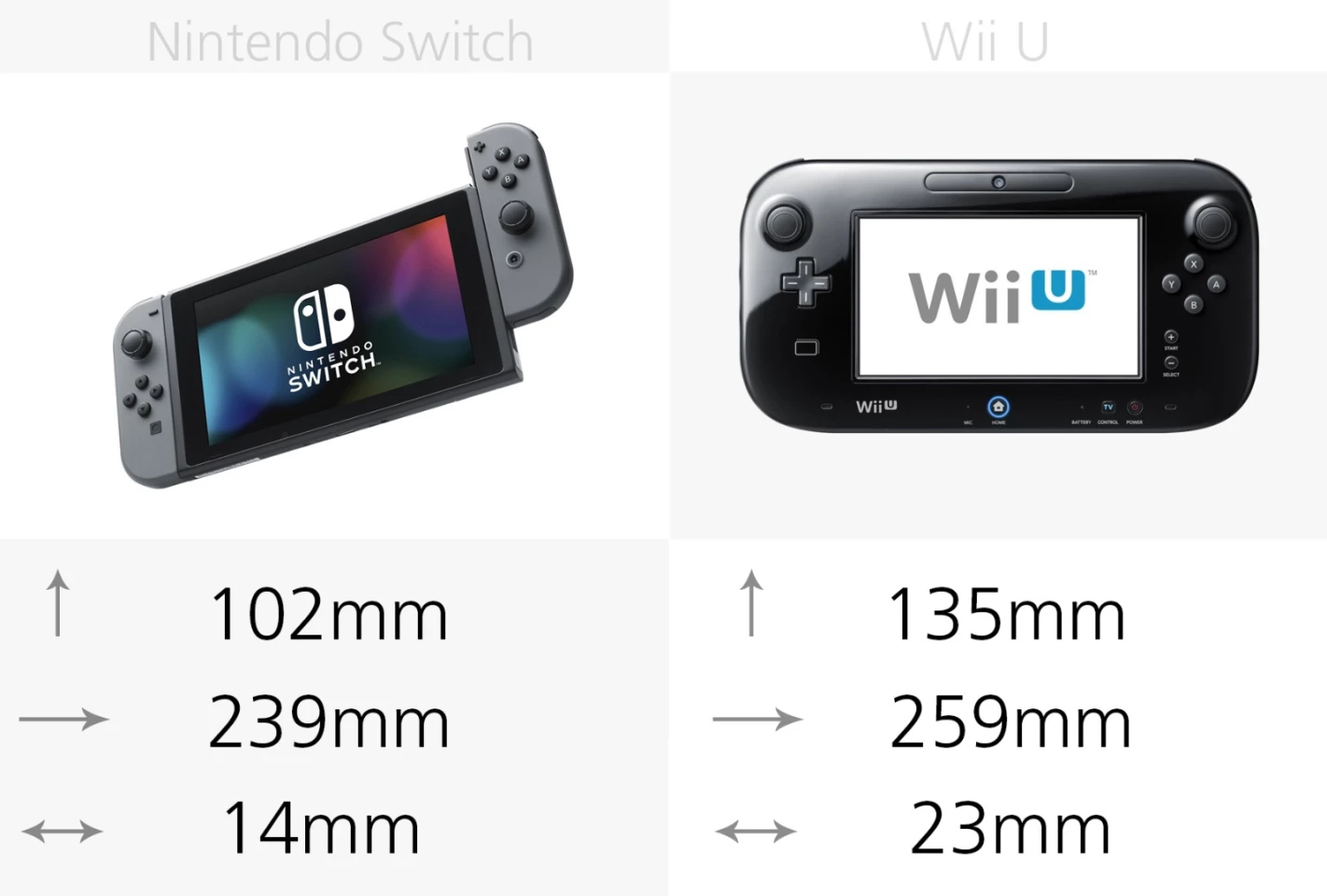
Despite being a fully self-contained console, the Nintendo Switch (with Joy-Con controllers attached) is still significantly smaller than the console-dependent Wii U GamePad.
Weight

Ditto for weight, as the full-console Switch is 40-percent lighter than the satellite GamePad.
Build

Nintendo loves plastic, but at least this time it's a classier-looking matte variant.
Display size

The built-in screens on Switch tablet and Wii U GamePad each have a 6.2-in screen with 16:9 aspect ratio.
Display resolution

The Switch's screen, however, has a 50-percent higher pixel density, for sharper text and crisper in-game graphics.
Maximum TV resolution

The Switch doesn't support 4K gaming when connected to a TV, as it maxes out on the same 1080p as the Wii U (actual resolution will vary by game).
Of course they'll both work just fine on 4K TVs; they just won't make the most of the TVs' full pixel counts.
Touchscreen

Both employ a touchscreen.
Stylus
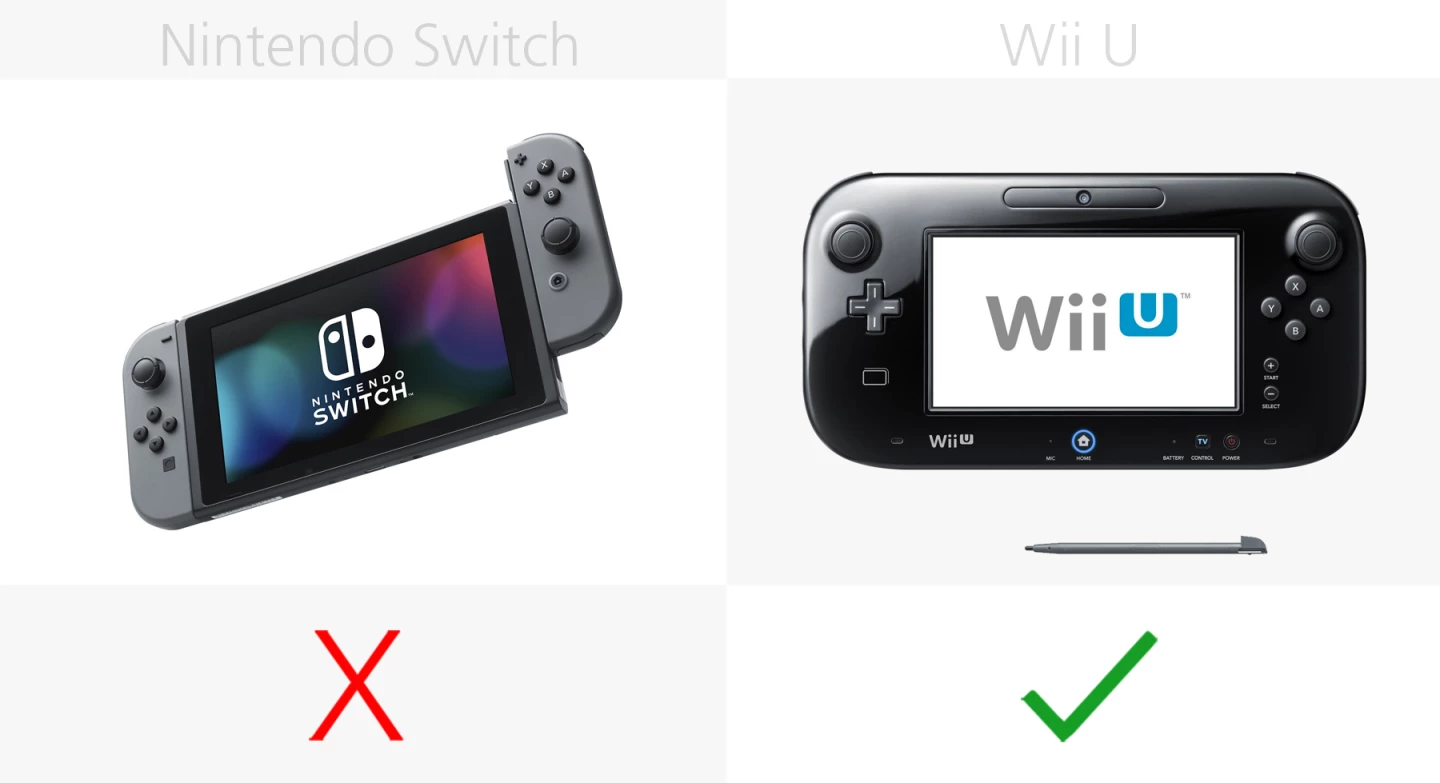
The Wii U GamePad included a plastic stylus that slid inside the unit. Nintendo has yet to announce any kind of pen support for Switch.
Detachable controls

You can slide the two Joy-Con controls off the sides of the Switch tablet, to use separately or to slide together on a classic gamepad configuration.
The Joy-Con controls also include an accelerometer and gyroscope inside, for motion control similar to Wii Remotes.
Internal storage

The Switch ships standard with 32 GB internal storage, while there were both 8 GB and 32 GB options for the Wii U. (Though in the Wii U that storage lived inside the main console, not the pictured GamePad.)
Expandable storage

There was an SD slot on the Wii U console, while the Switch supports microSDs up to 2 TB.
Game format

Nintendo Switch uses cartridges that are similar to 3DS cards, as opposed to the discs that ran inside the Wii U console.
Flagship game franchises

The Switch is a work in progress. At launch, it only supports one major flagship title: The Legend of Zelda: Breath of the Wild.
Being on market for over four years, the Wii U has plenty of killer first-party titles, like Super Mario 3D World, New Super Mario Bros. U, three full Zelda games, Pikmin 3, Splatoon, Yoshi's Woolly World and Mario Kart 8. The Wii U never got much third-party support, but Nintendo did its best to make up for it with its own titles.
The Switch will be getting a Mario Kart 8 port next month, followed by Splatoon 2 this (Northern) summer and potential system seller Super Mario Odyssey for the Q4 holiday shopping season.
It remains to be seen how much third-party support the Switch will get, but its combination of promising hardware and early customer enthusiasm could have it faring better than the Wii U did.
While there's a temptation to pounce on the sexy new console, there's much more you can do right now on the Wii U. Unless you can't resist having the latest and greatest shiny object, you may consider holding off until Switch gets a better and larger game selection.
Backwards compatibility

A big strike against the Switch is that it doesn't support any last-gen physical games. You could play old Wii games in the Wii U.
Virtual Console

While the Switch will eventually support Nintendo's Virtual Console (digital downloads of games from older Nintendo systems), it isn't available at launch.
Battery

Despite packing a full console inside the portable form factor, the Switch is rated to last up to an hour longer than the Wii U GamePad. (Though more demanding games on the Switch, like Breath of the Wild, will likely have it coming in far below that.)
You can also recharge the Switch on the go, by picking up a USB-C to USB-A cable along with a portable battery.
VR

Nintendo hasn't ruled out future virtual reality support for the Switch, but nothing is available or official today.
If Nintendo were to use the slide-into-headset approach for Switch (similar to mobile VR headsets like the Gear VR) you'd be working with very low resolution: Compare its theoretical 720 x 640 per eye to the 1,440 x 1,280 per eye found in Gear VR and Daydream or 1,200 x 1,080 per eye in the Oculus Rift and HTC Vive. The "screen door effect" (clearly visible pixels as you move your head around) would be unavoidable.
While Nintendo has never been a company to compete on cutting-edge visuals or performance, you could argue that 640p-per-eye resolution would be too low to sustain VR's fundamental illusion – no matter how fun or creative its games were.
So Nintendo's only chance at delivering Switch-based VR with at least mid-ranged visuals would be a tethered headset with its own built-in display.
Parental controls

Both systems give parents some control over what the little ones can play.
Release

The Switch just released this month, while the Wii U launched in late 2012.
Starting price

The Wii U originally cost either US$300 or $350, but it's no longer on sale. $300 gets you the Switch with either gray or blue/red Joy-Cons (and no bundled games).
For more, you can read New Atlas' Nintendo Switch review and our thought on the console from a parent's perspective.


